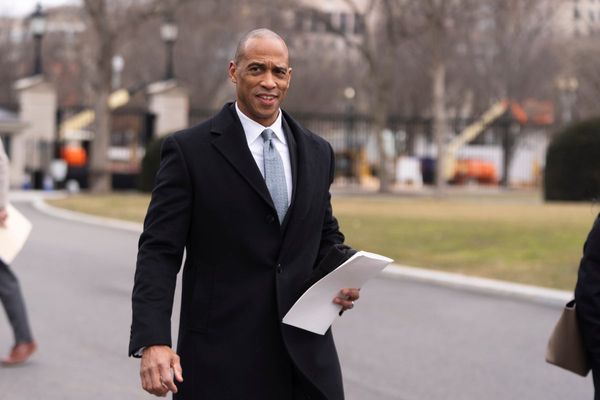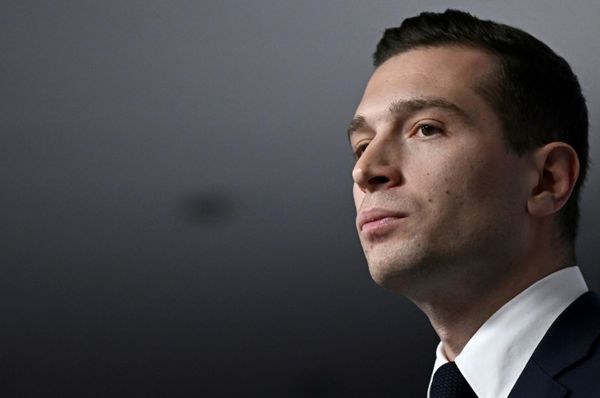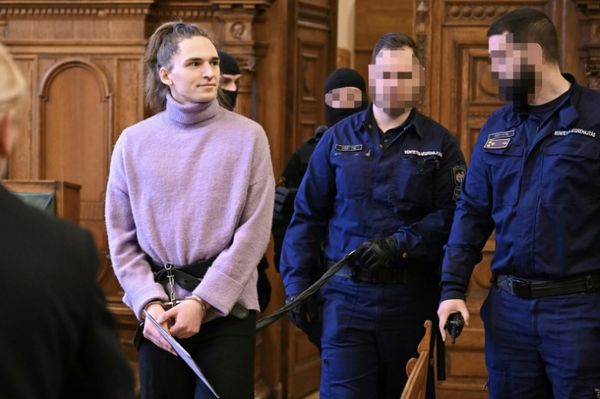When six-year-old twins Hely and Hian Om go home from school each day, there is only so much they can tell their grandparents about what they learned.
After some complicated family matters, they were left in the care of their grandparents, who migrated to Australia from India 18 years ago.
Narran Om and his wife do not speak much English, making it difficult for them to engage in their grandchildren's education.
Mr Om is one of many carers at Strathpine West State School, north of Brisbane, who struggle with the language barrier.
"I don't know English, so I'm joining this language class," Mr Om said.
"[There's] a lot of difficulty in this language."
'Break that barrier down'
Mr Om said he hoped the classes would help him better understand what his grandchildren were saying when they told him about their day, using words that might not have a direct Hindu translation.
"I really want to understand what they're saying and if there's any problem, I can help them go and speak to a teacher," Mr Om said.
The small school north of Brisbane is a melting pot of cultures.
There are 22 different languages spoken by students and their families, from Russian to Thai, Dinka and Farsi.
Deputy principal Therese Dixon noticed the disconnect parents were feeling.
"We wanted to break that barrier down."
Cultures need 'to be celebrated'
So with help from the school's principal Sharelle Hall and chaplain Darren Herrgott, Ms Dixon started Galaxy Group, an English learning program for parents and carers where "the sky is the limit".
Every Thursday morning volunteers from the community teach a group of parents conversational English, while also learning about their different cultures.
"We recognised how many cultures and how many diverse backgrounds our students had here at the school, and it was something that we thought needed to be celebrated," Ms Dixon said.
She said she hoped the program would help parents gain a greater understanding of the highs and lows of their child's education.
"We had one young man who was taking home lunchtime detention forms that we were asking his parents to sign so that they were aware of his behaviour, and he was telling his parents who couldn't read or speak English, that these were sporting forms," Ms Dixon said.
She said he had asked his parents to sign the forms so he could go off and play sports.
The program is open to all members of the community, not just parents of Strathpine West State School.
"It's not about us just teaching English — we want it to be two way and we want to learn about their culture as well, because there's so many rich, beautiful cultures here," Ms Dixon said.
"We have one father from Chile, another from India, a mum from Pakistan, another one from Afghanistan, so there's quite a variety, and we want to weave that into the fabric of our school and our greater community."
Two student cultural captains
The school has also appointed two cultural captains, year 6 students Sonaldeep Kaur and Sienna Ronlund, who work to foster inclusivity on campus.
"We have a lot of cultures here, people from Polynesian families, Indian families, Filipino families," Sonaldeep said.
Sienna added: "Languages spoken here include Hindi, Punjabi, Filipino, French, Spanish and Japanese."
One of the captains' main roles is to support their diverse student body through guidance and conversation.
"We actually help people around the school who are feeling a bit upset and getting bullied about their culture — we tell them how good their culture is and they're very lucky to come from a different culture," Sonaldeep said.







